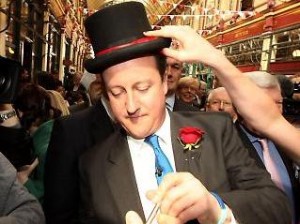Talking About Privilege

Relevant to our interests, and probably yours, is this point/counterpoint discussion in The New Statesman on what we accomplish (or don’t accomplish) when we talk about privilege.
First up is Tom Midlane, who argues that “privilege-checking” detracts and divides people who could be better off setting aside their differences to work together to eliminate problems of discrimination and inequality:
Privilege becomes an inescapable feedback loop: any attempt to critique privilege-checking is met with the retort: “You’re privileged enough to have the luxury not to think about privilege.” But that’s not it. I’ve always been aware that as a child of a white, middle-class family, I have life easier than some people — but that’s precisely what drives me on to seek social justice for those less fortunate than myself. Prejudice exists. We live in a radically unjust world. But turning our personal circumstances into some sort of pissing contest achieves precisely nothing.
The counterpoint comes from Zoe Stavri, who argues that we can’t actually accomplish anything significant if we don’t identify the root of our problems in the first place, which has a lot to do with privilege:
Far from detracting from struggle, being aware of one’s own privilege and actively working to ameliorate its effects can only enhance what we are trying to achieve. We must be willing to be radically different from those in power if we are to avoid alienating those less privileged than ourselves. It is utterly urgent that we listen to those who we claim to be fighting for and avoid contributing to any continuing oppression. Without getting our own house in order, we are coming from an inherently weak position.
A good discussion! As we were, then.
Support The Billfold
The Billfold continues to exist thanks to support from our readers. Help us continue to do our work by making a monthly pledge on Patreon or a one-time-only contribution through PayPal.
Comments